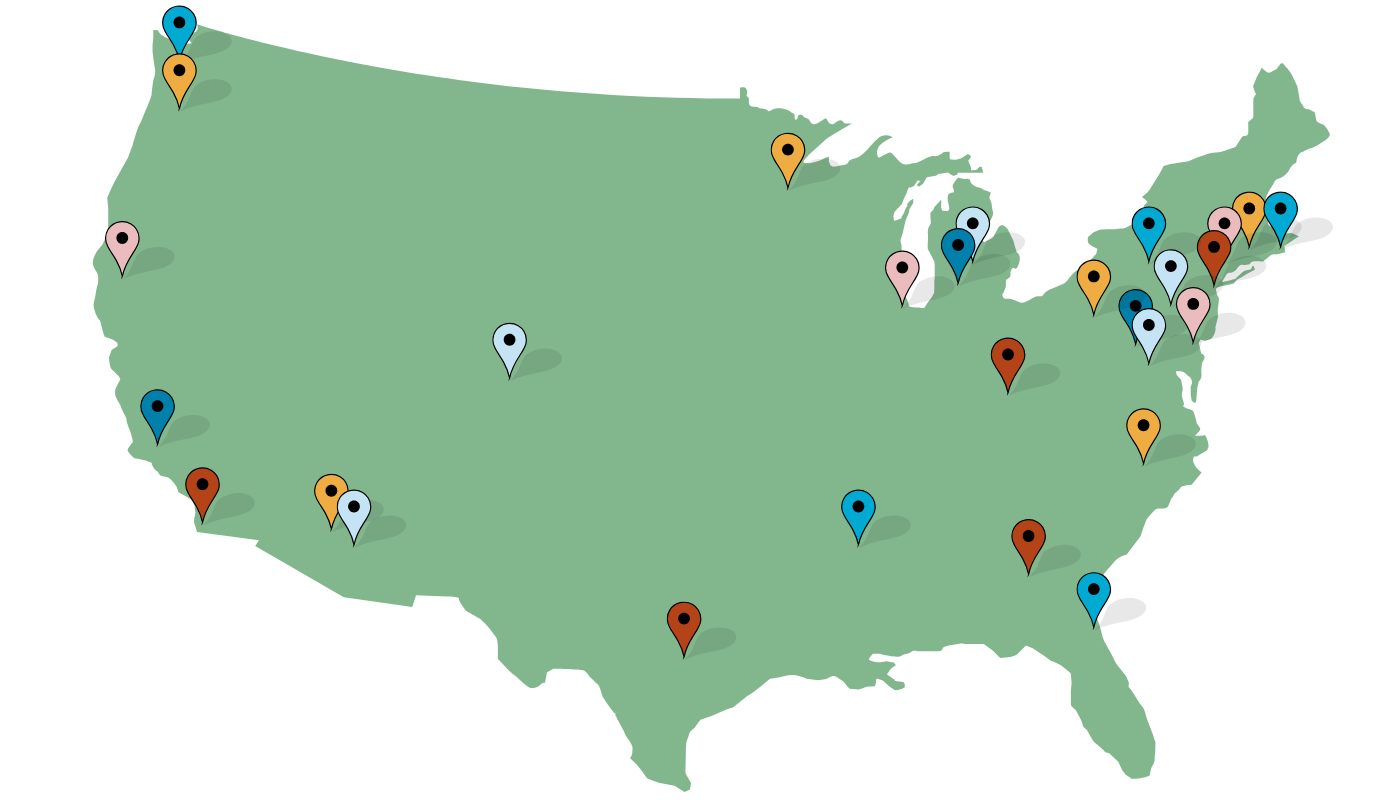
From our Classroom to Yours
DUCC’s Story
About the Program
DUCC was created by a team of undergraduate students at American University who developed a pilot program including four lesson plans and an animated video as a way to pre-prevent online radicalization by teaching critical thinking at an early age.
After the initial proof of concept, they joined the Polarization & Extremism Research & Innovation Lab at American University’s School of Public Affairs to continue developing DUCC. In 2023, the team received a US government grant to expand DUCC into a full K-5 curriculum developed with teachers and experts in critical thinking, digital & media literacy, and child psychology. The DUCC team has presented at conferences across the US and internationally, as well as briefed the White House and senior government officials. The curriculum was pilot tested in 22 classrooms with almost 400 kids, ensuring that the content was the highest possible quality.
DUCC is now being used in hundreds of classrooms across the US. It has been reviewed and approved by the American Academy of Pediatrics (AAP) Center of Excellence on Social Media and Youth Mental Health and is being provided as a resource to teachers in New York City Public Schools.
Why DUCC?
False and harmful content is increasing in almost all online spaces. Kids are growing up with the internet as a part of their daily lives, and need to be prepared with essential skills to navigate their always-online world.
DUCC is different from traditional digital citizenship programs - we focus on kids at a critical stage in development and when they are first emerging into the online world: in Kindergarten through 5th grade. Technology is evolving at rapid speeds, so rather than teaching the specifics of current online platforms that will quickly become outdated, we teach foundational critical thinking skills that apply to current and future digital spaces.
Kids will inevitably be exposed to a range of perspectives; it’s important for kids to understand that not everything they see is true, trustworthy, or reliable. DUCC’s emphasis on critical comprehension skills enables young people to understand all sides of an issue and fact-check before they come to their own informed conclusion.
DUCC focuses on skills such as using logical reasoning, identifying reliable information, how beliefs are formed, recognizing persuasion tactics, understanding AI, algorithms and more. Teaching these skills at a young age will help reduce the risk kids face in engaging with harmful content when they inevitably encounter it as they grow up.
Where DUCC is Being Taught
Staff
-

Pasha Dashtgard, PhD
PI and Director of Research
-

Christine German
Program Manager
-
Laura Kralicky
Co-Creator
-

Emily Stingle
Co-Creator
-

Nora Lewis
Co-Creator
Advisors
-

Alejandra Ramos Goméz
Early Childhood Specialist
-

Amanda Morin
Early Childhood Specialist
-
Lauren Shea, PhD
Instructional Design & K-5 Literacy
-

Sara Wicht, PhD
Instructional Designer & Professional Developer
-

Stephanie McGary
Licensed Professional Counselor and Registered Play Therapist™
-

Katie Mauro
Elementary School Library Media Specialist
-

Mary Beth Hertz
Instructional Technology Specialist & Teacher






